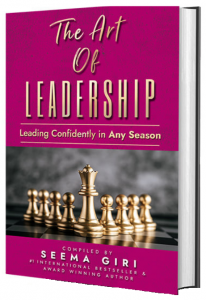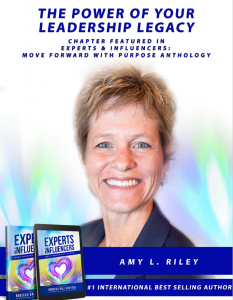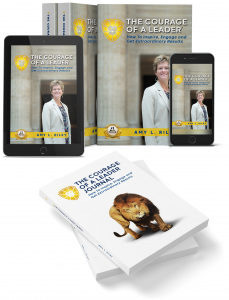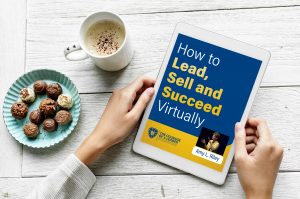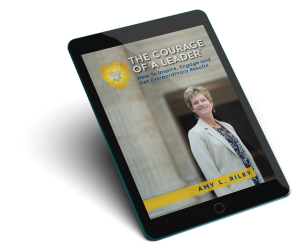In today’s world of endless notifications, overflowing inboxes and constant noise, focus and presence feel harder than ever to hold onto. In this episode of UNFILTERED Courageous Conversations about Focus and Presence in a Distraction-Heavy World, Daphna and Amy take an unflinching look at the cost of distraction from information overload (the equivalent of 16 movies a day!) to the hidden toll of multitasking.
This isn’t about productivity hacks or quick fixes. It’s about courageous conversations. How distraction shapes our leadership, our relationships and even our sense of self. Through personal stories, science-backed insights and practical tools, they explore what it really takes to reclaim focus and choose presence in a world that thrives on pulling us away.
If you’ve ever felt scattered, reactive or simply longed to slow down and be fully here, this episode is for you.
Timestamps
[00:01:11] Information overload and distractions
[00:05:25] Distraction vs intention
[00:09:14] The importance of human connection
[00:12:35] Presence and focus in team engagement
[00:19:24] Tech boundaries for focus
[00:22:56] The benefits of being present
[00:26:36] Full presence in conversations
[00:30:24] Commitment to personal challenges
Connect with Your Co-Hosts
Daphna Horowitz
https://www.linkedin.com/in/daphnahorowitz/
https://www.facebook.com/PEACSolutions
https://podcasts.apple.com/ca/podcast/leadership-live/id1524072573
Amy L. Riley
http://www.courageofaleader.com
https://www.linkedin.com/in/amyshoopriley
https://courageofaleader.com/podcast/
Thanks for listening!
Thanks so much for listening to our podcast! If you enjoyed this episode and think that others could benefit from listening, please share it using the social media buttons on this page. Do you have some feedback or questions about this episode? Leave a comment in the section below!
Transcript
Daphna Horowitz:
Welcome back to Unfiltered, where leadership gets real. Today, we're talking about something we all know we want and need, but can't seem to hold on to for more than a few seconds. And that is focus and presence.
Amy Riley: Yes, Daphna, we are in a world of constant pings and posts and pressure. So focus has become a luxury, a rarity, and a leadership superpower. So why is it so hard to stay present? And what is the cost when we don't?
Daphna Horowitz: Yes, and that's exactly what we are going to be talking about. So in this episode, we're going unfiltered on distractions, presence, multitasking, and what it really takes to reclaim our attention.
Amy Riley: So if you have ever felt scattered, reactive, or like you're constantly trying to catch up, this episode is for you. Yeah.
Daphna Horowitz: Let's dive in, Daphna. Yes, absolutely. So I'm wondering, should we start with some of those interesting stats that we found quite shocking when we were going through those? Okay, yeah. So we were talking about how much information we actually come across in a single day. And we wanted to do some research about that. So this is what we found out. We actually receive 74 gigabytes of information per day. And that is the equivalent of 16 movies.
Daphna Horowitz: Crazy. That's a lot of information.
Amy Riley: That's what got me, Daphna. 16 movies?
Daphna Horowitz: Imagine that. In addition to everything that you're doing, you are bombarding your senses with information that is the equivalent of 16 movies. On top of that, we see between 6,000 and 10,000 ads per day. How crazy is that? You know, constantly pulling at our attention and saying to us, buy this, buy this, you need this, you need this, this is not good enough, get this to make it better. Crazy, crazy. Then the fact that we have between 60,000 and 80,000 thoughts per day. And we know about those thoughts that most of them are repetitive. So thoughts that we've thought before, nothing new. I think they say something like 95%. And negative. Most of our thoughts are negative. So they're going to put us in a bad mood. So just think about all those movies, all those ads, all these negative repetitive thoughts.
Amy Riley: And we're also pointing out, Daphna, that some of it is coming from the outside in and some of it is coming from the mechanism of our own brains. Exactly, exactly. And we're getting that push and pull and our brains and ourselves are getting practiced to like just kind of be filtering and pinging around from one piece of information to another. And we are not in the practice of focusing in on something or someone.
Daphna Horowitz: Yeah. What I love about these numbers that we started with is that if we are aware that this is what's going on, then I think just that awareness can already create some kind of a cut. You say, okay, hold on a sec. this ad that I'm seeing now or this new piece of information or this reel that I'm watching, it's just adding to my own sense of overload before I've even had an opportunity to engage with something that I'm choosing to engage with. So that's just an interesting distinction for me, becoming aware of our element of choice here and what you bring in the ability to filter that choice.
Amy Riley: Yes, yes. I was thinking the same word, choice, Daphna, when you were saying that. So just being aware of when, wait, open up our computer, open up our device, drive down the street, right? We are going to be bombarded with information and advertisements, right? And we aware that that is going to happen, that is something that's in our world, and we choose how do we want to interact with it.
Daphna Horowitz: Exactly. And I think the two go hand in hand, because for me, that awareness is key, because when we're not aware, we're just kind of going with the flow and allowing all of this to happen, so we don't have choice. But if we can stop for a minute and say, OK, hold on a sec, I mean, I'm guilty of the scrolling motion that My fingers have become very accustomed to, you know, just scroll and just another one on. This looks interesting and let me watch this. And we were talking earlier about being sucked into news and pieces of information that are not going to help us in our day. They're not going to help us feel good. They're not going to help us be productive. They're going to take us away from what we really want to do and how we can add value. So just the awareness of, hold on a sec, this is what I'm doing. And then I think asking yourself the question of, I can make a choice. Do I want to continue? Is this what I feel I'm doing right now? Or am I actually running away or distracting myself from something that I really should be doing or want to be doing?
Amy Riley: Daphna, I just wrote down the word distraction over here as well. That choice of when am I taking myself into the noise as a distraction? And when am I intentionally in search of something? Intentionally choosing to focus in or check something out or dive deeper intentionally.
Daphna Horowitz: Right. And I think for me, that word is super important, that word intention, because we don't always connect to it. We don't always realize where we are at in relation to intention. And what comes to mind for me with that, and I know you've experienced the same because we discussed it, is when we're in a meeting or a coaching session with a client and the constant action of picking up your phone, picking up your phone, you know, looking, checking, something buzzes, the light comes up and you're immediately distracted and wanting to look at it. It's so simple to actually put the phone away, you know, in your bag, put it on silent, and yet we choose not to. And to me, this links to the word intention. What is our intention? What is our intention when we don't put away the phone? When we refuse to, even though we want to, and I say this with so much understanding because I know my clients say to me, I want to, but I feel that I'm completely addicted. I can't. What is that about, Amy? What do you think?
Amy Riley: Yes. No, I want to dig into this why. Yeah. I think so many of us have had the experience of being able to perceive whether that person across the table or across the screen from us was truly present with us or not. So we know it is perceived when we're not fully present. Why are we not showing up fully present at times? That is the question. The why. Yeah. Let's just start throwing some reasons out here, Staphna. I'll start. I think one is our work overload. Right, and oh, can I multitask during this conversation? Can I multitask during this meeting? Can I get something else done in the background? Get that off of my to-do list while I'm also participating in this meeting. Right. This is so dangerous now in our virtual and hybrid work setups that many of us are in. It's very easy to be distracted by this. So I'm going to go and I'm going to get something else done, let alone if a Slack message comes up and, oh, another colleague needs me right now.
Daphna Horowitz: And I have to do it now. I have to deal with it. Yes. I have to deal with it now. That thinking.
Amy Riley: Yeah. That those messages need to be responded to super quickly. Right.
Daphna Horowitz: Right. Right. But I want to ask about that because you are, you're talking about trying to do more things. Maybe it won't be noticed. I want to answer the message now. I want to fit more things into my day. But for me is what's underneath that? What is the fear beneath that? If I don't answer the message now, if I don't, if I fully focus and don't try and answer an email while this team meeting is going on, if I don't try and fit in extra things into my day, Yeah, what's the fear?
Amy Riley: What will happen? I think I think Daphna, this is a great inquiry for all of us. Yes, I know. It's a great inquiry for me. I think it's a great inquiry for our listeners. What is that fear? When we know that it's important and we can talk about what gets created, what is possible when we're fully present with other people in our interactions, in our meetings, in our conversations. But I think we all know that there's some juice there, that there's something important about the human connection, but yet we're letting ourselves get pulled away from that in moments.
Daphna Horowitz: Yeah.
Amy Riley: Why do we allow that?
Daphna Horowitz: So I know something interesting. And that is that often when we want a certain experience, so it could be I want the experience of just, you know, knocking things off my to do list, I want the experience of answering a message straight away, so it doesn't sit on my head. Often the experiences we want, actually we don't want the experience itself. We want the feeling associated with the experience. Okay.
Amy Riley: Okay.
Daphna Horowitz: So if we, I want a clear to-do list, maybe because it will give me a feeling of freedom. Maybe it will give me a feeling of calm and ease.
Amy Riley: I'm on top of things.
Daphna Horowitz: Yes, exactly. I want to answer messages straight away because it will give me a feeling that I'm on top of things. I'm responsive. I'm a great colleague. I'm a great yeah. So that's something to look at. What is the feeling that I'm trying to create by this behavior? And am I really getting that feeling when I'm not present? Because I think that's the challenge here. It's okay, I'm looking for a certain feeling, but I think it's not real. I don't think that the feeling that we get from doing things half-heartedly or half well because I'm doing five things at the same time and not really being present, we're not really getting the feeling of the ultimate feeling that we're looking for. So an example that came to mind as I was saying this is, for example, when our kid comes to us and they want to talk to us and tell us what happened with their day, right? So if we've got teenagers, I know this is a very rare moment when they actually want to come and share, but at any point in time, little kid or older kid, doesn't matter. And we're in the middle of something and we want to listen. So we go, yes, yeah, lovely, lovely, great. And we kind of half listening, but we're also tapping the email. And if we say, what do we want when our kid comes to share a story with us, we want that connection with him. But by doing it half, half like that, we're not, we're actually damaging our connection with him.
Amy Riley: Yes, yes. Daphne, I'm thinking about a leadership program. I was a part of leading, and we had all of the leaders conduct an experiment to be fully present with their team members. Team meetings, one-on-ones, whatever. So they made the commitment to sit on their hands or put their phone out of reach or put all applications on Do Not Disturb. so that they were fully present with those. Did they agree, first of all? They did agree. Wow, that's a big step already. They did agree. I'm going to say the results were about 70% said like, yes, I did it across the board, right? I mean, other people are like, no, my boss pinged me about this thing, you know, like, They feel like the really real excuses to not be present with the team members and. they got benefits that they didn't expect to get. Like there was clarity of thought. There were new ideas that came in. There were real examples of new stretch assignments for team members that were giving them the chance to get visibility and try something that they hadn't been involved in in the past. There was real benefit to it. Because I think part of why be fully present, because we don't know what we don't know. We don't know what all will open up if we allow for that. And there were some that were like, yeah, I had great conversations. I felt connected with the folks. I don't have any great stories about new developmental opportunities or a new solution or whatever. But I was connected with that person. So sometimes if we don't see what is going to be the immediate gratification, the immediate benefit, we don't play the game. And I think it's just like, I could do something else here. I could get one, you know, I could respond to this other message really quickly.
Daphna Horowitz: I think you're hitting on a really important point here, which is the difference between immediate gratification and an unknown. I don't know what I'm going to get if I'm going to be fully present, but I know that if I try to do two things at the same time, I'm going to at least feel like I'm doing two things at the same time. Yes. And I think that's a really important point is that immediate gratification. I feel like I'm doing something that I need to do. Am I doing it well? Am I really connecting? Am I really achieving what I want? Am I getting the feeling that I want? Not sure.
Amy Riley: You look great with the inquiries today, Daphne.
Daphna Horowitz: You know what, I think this is a topic that is so close to my heart because I think over time, as we've both worked with people over the years, whether it's one-on-one or in group settings, we see how presence has taken a nosedive in terms of these situations and these contexts. and even team meetings. I had a manager tell me once, it doesn't matter if I'm sitting on my laptop while I'm having a meeting with my team, because if they need me, they'll just call on me and then I'll answer. And I said to him, do you think that it makes no impact on your team if your laptop is open and you're working away, or if you close the laptop and just engage in the conversation with them? and it actually took a while and I don't know if it's because he didn't really want to admit it or because he really had to think about it. It took a while for him to really get that being present and being focused and really giving your team attention creates a different kind of listening and a different kind of engagement because not just being called upon when there's a question It's also picking up the dynamics of the team, picking up the nuance of the things that are said and picking up things that are not said. And you can't do that if you're not present. But you need patience. You need patience and you need to breathe and you need to slow things down. And I think that's scary for people. The idea of slowing things down is very scary.
Amy Riley: Yes, yes. And not knowing exactly what we're going to get out of that practice, it's bringing me back to the idea of intention. Yeah. Right. So if I'm that manager who's been on my laptop for team meetings in the past, and now I'm going to talk myself into closing that laptop and being fully present during that conversation, what's my intention? Is my intention to really understand what's going on with the work? Is my intention to really tune in to how people are doing? Is my intention to listen and provide whatever leadership I can? Oh, that's an obstacle I could help them remove. What's my intention? for tuning in. It's about reasoning.
Daphna Horowitz: And what's scary about it, Amy? What is scary about it? Because I think there is something scary. And I know, I mean, I don't know. And maybe, as you say, that's another reflection question. And I'm bringing it back to the fear. But I think if we look at when we avoid doing something, why are we avoiding it? Usually because we're scared of something.
Amy Riley: Yeah, I can just make some stuff up here, Daphna, but it could be, well, what if my team doesn't need me?
Daphna Horowitz: What if I feel like I'm not adding value because I haven't got anything to add, so I'd rather look busy?
Amy Riley: What if I start to get concerned that they're not on top of these things or this is happening or, oh yeah, I'm noticing that people are struggling now. Now, how do I support them? Now I have more questions and concerns on my brain. It could also be, I'm used to getting the, you know, A, B, and C tasks done during this call. And now I will have to find time elsewhere to do A, B, and C in my days. Exactly.
Daphna Horowitz: What if I don't get everything done? So I need to use it. And what if I don't answer my boss and he's going to get, or he or she will get cross with me because I haven't been super available. There's a lot, I guess, those are fears, those are fears that are interesting to notice and manage. So I guess that question of what is really scaring me right now, if I put everything down, and just focus or if I slow things down, and just focus on one thing?
Amy Riley: Yes, yes. Because then we can set ourselves up for success for being focused. Like if we're concerned that we're not gonna be able to respond to our leaders, our leader or leaders during that time, set that up. Like, hey, I found that I've decided I wanna give my team my full attention. So I'm gonna be completely off the devices during these hours. I'll be back on by this time. So you can expect a response by then. Yeah.
Daphna Horowitz: I think there's always something you prepare to switch off your phone for or not switch it off, but put it aside for a not answer. There must be something like I know for me. I know we spoke about tech boundaries, but you know I am Jewish and I keep the Sabbath and I switch off my phone for 24 hours every single week and I love it. I'll be honest, I absolutely love it, but it's off and I don't use it at all. But OK, so that's one example.
Amy Riley: Yeah, well, no, but Daphna, I would like to double click on tech boundaries right here. Yeah, out of the rhythm, out of the practice of I have to be checking, I have to read, run, run, I have to tune in. And the more that we break that pattern, and we break that desire for those dopamine hits, the easier it will be for us to intentionally focus our presence when we choose to.
Daphna Horowitz: Right. Right. But I'm saying further than that, I'm sure every person has something they will not pick up their phone for. So, you know, I'm thinking of worst case scenarios, but, you know, if you're in a doctor's room and getting some really important information about your health. And when you're in bed, you're not going to look at your phone if it pings.
Amy Riley: A family member is crying in front of you and you're supporting them. You're not going to pick up your phone or…
Daphna Horowitz: Or driving. When we're driving, I know it's a habit that's difficult to break, but I think that mostly people are very conscious of not picking up their phone or trying to read texts when they're driving. So I'm saying the capability is there. The capacity to decide. There are things I will not pick up my phone for. When you're in the shower, you are not going to be on your phone. Okay, purely because we don't have waterproof phones. When we are swimming in a swimming pool, we are not going to be looking at messages. I'm willing to bet other forms of sport, cycling could be difficult to be looking at messages. There are moments that we will be non-negotiable on that. So what if we expand those just a little, just a little?
Amy Riley: Yes, yes, give yourself that nature walk in the middle of the day, you know, yeah. Without the phone. Right, right. Without the phone. So I think this is an invitation. And I'll take this one on myself as well, Daphna. Like, yeah, how do we take those spaces where we're not immediately responsive, that we're not tied into our tech and expand those spaces in our days? create more spaces.
Daphna Horowitz: Right. Right. I think that's really important. I know that there's a statistic that says that we touch our phones on average 2,617 times per day. We touch the phone because it's become a reflex. You just touch it. You just pick it up. You just look at it. So maybe let's get down from that ridiculous number. Yeah. Yeah. Yeah. And I did want to add another thing I think that might be scary is that when we are really present and really listening to people, there might be something scary about that. Like then I'll really have to pay attention or maybe I'll have to come up with something clever to say, or maybe I'll get bored if the person goes on too much. What if I don't know how to comfort them?
Amy Riley: What if I don't know? If they bring something real up, I might not know what to do. I might not be prepared for what's coming up. Yeah. Yeah. I know we've talked some, Daphna, about the benefits of being present. I wanted to bring some more into our conversation. You don't know what you don't know. You don't know what might come up. You don't know what might click or you might see or hear in a new way. Increased cognitive efficiency. When we're focused, our brain can get into a flow state and we're using our energy more widely. Studies show that that task switching, because we can't really multitask.
Daphna Horowitz: Task switching. Exactly. You're never doing a few things at the same time.
Amy Riley: Can reduce productivity up to 40%.
Daphna Horowitz: Which makes sense, which makes sense. Yeah. Because you're not really focused. And I just, I want to interject here with mentioning the book Deep Work by Cal Newport. I think it is an amazing, amazing book. And he talks about focus being such a limited resource in our day and age because of the distractions and because of the, you know, myriad of things that we, have going on at any point in time, we are unfocused. So those people that can cultivate focus and can really do deep work, those are going to be our unicorns coming up in the future because very few people are able to do that.
Amy Riley: Yes, yes. You can be the leader. You can be the service provider that provides something unique. Exactly. In our world, in our workplace right now. Yeah.
Daphna Horowitz: Just by being able to focus and be present.
Amy Riley: Yeah, yeah. Improved decision-making. We've talked about that a little bit, but focus enhances our working memory, right? It's really working the prefrontal cortex, and that can improve our critical thinking over time. So that's deeper learning, retention. When we're fully present, there's more of a chance that what's coming in is going to make it into the long-term memory. Right. And when we're tuned in and we're focused, we're better able to emotionally regulate. We're not all of a sudden going to be caught unawares by some reaction and now I've snapped or I've said something in frustration or anger that I wish that I hadn't. We're better able to regulate and be aware of what is happening in our emotional and cognitive systems.
Daphna Horowitz: Yeah, absolutely, absolutely. Okay, so what do we want, what do we want to leave our listeners with? What are the thoughts and the reflections and the, I don't know if I want to say tips, but I don't even know if it's about tips, you know, but I do want them to walk away with something useful.
Amy Riley: How about an invitation for an experiment and an invitation for an inquiry? Nice. OK. I'm the how-to gal. And this is what I want to take on this week, is choose a relationship or a type of meeting or a type of interaction and commit to giving it your full presence. take away the distractions, do this experiment for a week and see what emerges.
Daphna Horowitz: Okay, so let's just dive in a little bit deeper there and say, what does it mean to give it your full presence? What does that mean?
Amy Riley: Yes, not task switching. Right. Not task switching. Having an intention bringing an intention to the conversation and the space and being fully with.
Daphna Horowitz: Yeah. And I love that because I think the intention can be, how do I want to be in this conversation? The intention doesn't have to be about the outcome of the content of the conversation, but how do I want to be in this conversation? Yes. And I would say put away the phone. I would say put away the phone. Close the laptop. Move to a space that maybe is technology free. Go to another table or a couch or whatever it is and just sit and listen if it's a relationship focus. If it's a task focus, switch off the notifications and all of those things that we've got going on and really just have one window open and see what that feels like.
Amy Riley: Yes, I like this. So choose a very specific experiment for yourself for this week.
Daphna Horowitz: Yeah, I love it.
Amy Riley: And then you have brought up a number of fantastic inquiries today. Daphna, is there one you want to leave us with?
Daphna Horowitz: I know that I spoke about the emotion. What is the emotion I want to feel by doing this thing? So whether it's having split focus in this way and accomplishing three things at the same time, why am I doing it? What is it that I want to feel as a result? And is the strategy going to get me to that feeling? That was the one thing. The other thing I really did bring up a bit is the whole thing of fear. What am I scared of if I don't, you know, if I give this thing my full attention, what am I scared of? And something that came up for me here is also the power of saying no, you know, learning to say no, because not saying no is scary. So if you are doing one thing and you want to fully focus on it, you're probably saying no to a whole lot of other things. So maybe that's also part of that inquiry around fear. I like that.
Amy Riley: So yeah, the crux of your first inquiry there, Daphna, is Why am I allowing myself to be distracted? What are the feelings I'm chasing in that situation? And then why am I not committing to be fully present? What are the feelings I'm afraid of or avoiding in that situation? And then, yeah, and then what do I need to say no to?
Daphna Horowitz: Right. What do I need to say no to? I think that's actually a big one when we come to the conversation about presence and focus.
Amy Riley: Yes.
Daphna Horowitz: Yeah.
Amy Riley: Yeah. So we're inviting you to do some internal work here to look at the whys. Yeah.
Daphna Horowitz: And I guess also just to yeah, we said an experiment, but maybe challenge yourself to something that you feel is maybe impossible or maybe too hard and, and try it for a short period of time, you know, see what that's like for you. Yeah.
Amy Riley: Yeah, I think I thank you for your inquiry brain today, Daphna, because I think this has gotten us to what we really need to look at in order to make a change. Because listen, we've heard about the techniques. Put your devices away. Do this. Take a nature break. We've heard all of these tips and techniques, but we don't do them on a regular basis. And I think each of us have to get to why is that? Why is that? What commitment, what intention, what feeling, what connection is important enough for me to make a shift?
Daphna Horowitz: Right, right. Beautiful. Thank you, Amy. That's a really powerful and important conversation to have. And I think that if we've just brought it into your awareness, our listeners, just to think about it in a different way and not to take it for granted. It's so much easier to just do what we always do and think that we're managing it and fool ourselves into thinking we're doing a good job, we're managing everything, it's working, so everything is fine. But maybe to just take a moment to think about presence and focus differently and yeah, what you'd like to do with that.
Amy Riley: You can do it. You can do it in this next moment, right? You have the energy to bring your focus in a new way or to a situation. Yeah, you can do it. Cool.
Daphna Horowitz: Well, see you next time. And we'd love to hear the results of some of those experiments that we've encouraged you to take on. So let us know. And see you next time. Am I stopping the recording?
Amy Riley: Thank you all for coming on this unfiltered journey with us. If you enjoyed this episode, if you got something out of it, please comment, let us know, and share it with others so they can benefit as well. Thank you for tuning in. See you next time.
Daphna Horowitz: Bye-bye.


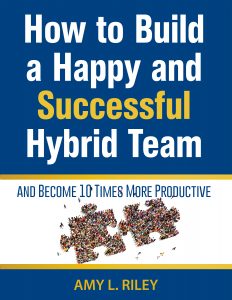
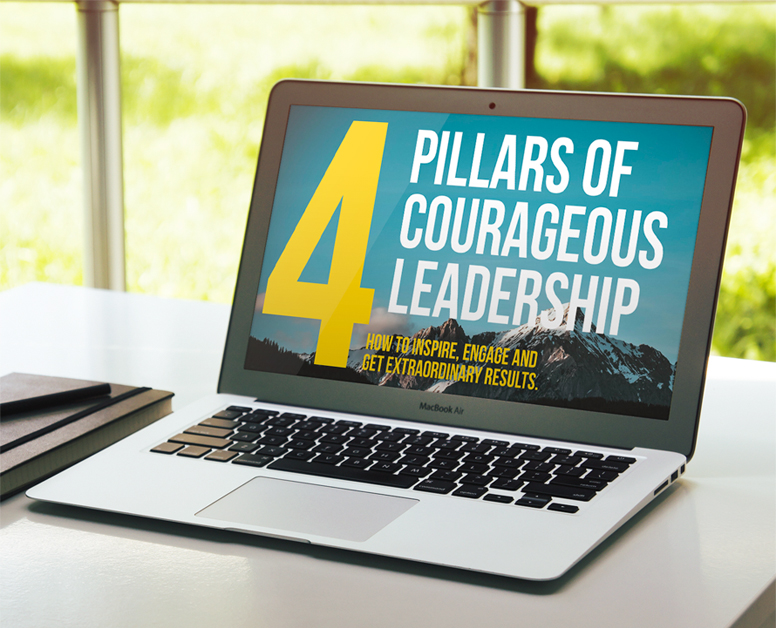 A Summary of The Courage of a Leader® 4 Pillars
A Summary of The Courage of a Leader® 4 Pillars